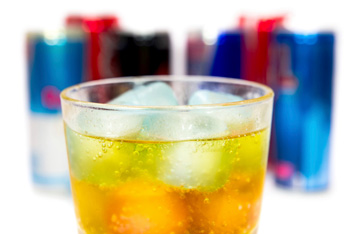 Dec. 17, 2013 – The insurers for the maker of an alcoholic drink containing caffeine and other energy stimulants have no duty to defend numerous actions alleging the drink was the cause of death and other serious injuries, a federal appeals court has ruled.
Dec. 17, 2013 – The insurers for the maker of an alcoholic drink containing caffeine and other energy stimulants have no duty to defend numerous actions alleging the drink was the cause of death and other serious injuries, a federal appeals court has ruled.
Three students at Ohio State University concocted the drink “Four Loko” in 2005. The name suggests that its four ingredients – alcohol, caffeine, taurine, and guarana – provide a “crazy” mix. Indeed, four plaintiffs allege the mix caused crazy behavior.
One complaint alleges that Jason Kieran consumed several cans of the beverage and stayed awake for 30 hours because he was intoxicated but could not sleep. He decided to shoot guns with friends in his back yard, and accidentally shot himself. Kieran died.
Two other plaintiffs were passengers in a car driven by a Danielle Joseph, who drove aggressively at speeds of 100 mph after consuming Four Loko, crashing the car.
Another plaintiff drank two cans of Four Loko and later ran into a busy highway, apparently experiencing some psychotic break. He was struck by a car and killed. The fifth plaintiff experienced heart troubles after drinking Four Loko, but that case settled.
Claims include strict liability, negligence, design defect, failure to warn, products liability, and wrongful death, among others. Four Loko, which gained popularity among college students but was later banned on numerous campuses, no longer contains caffeine.
Four Loko’s manufacturer, Phusion Projects Incorporated, had commercial general liability insurance policies in place when the deaths and injuries occurred.
But the policies did not apply if Phusion was liable for “causing or contributing to the intoxication of any person.” Thus, a federal district court in Illinois, sitting in diversity but applying Illinois law, ruled that insurers had no duty to defend Phusion in these actions.
In Netherland Insurance Co. v. Phusion Projects Inc., No. 12-1355 (Dec. 16, 2013), a three-judge panel for the U.S. Court of Appeals for the Seventh Circuit affirmed.
The panel rejected Phusion’s claim that the insurer had a duty to defend because, in addition to liquor liability, the case involved “stimulant liability,” and there was no exclusion clause for actions based on injuries sustained from the drink’s stimulants.
“The presence of stimulants in an alcoholic drink has no legal effect on the applicability of a liquor liability exclusion,” wrote Judge William Bauer.
“The supply of alcohol, regardless of what it is mixed with, is the relevant factor to determine whether an insured caused or contributed to the intoxication of any person.”
The Panel also explained that if Phusion “wanted insurance coverage for incidents that occurred after someone imbibed its alcoholic concoctions,” the company should have paid the insurance premiums for that coverage. “They did not,” Judge Bauer wrote.
